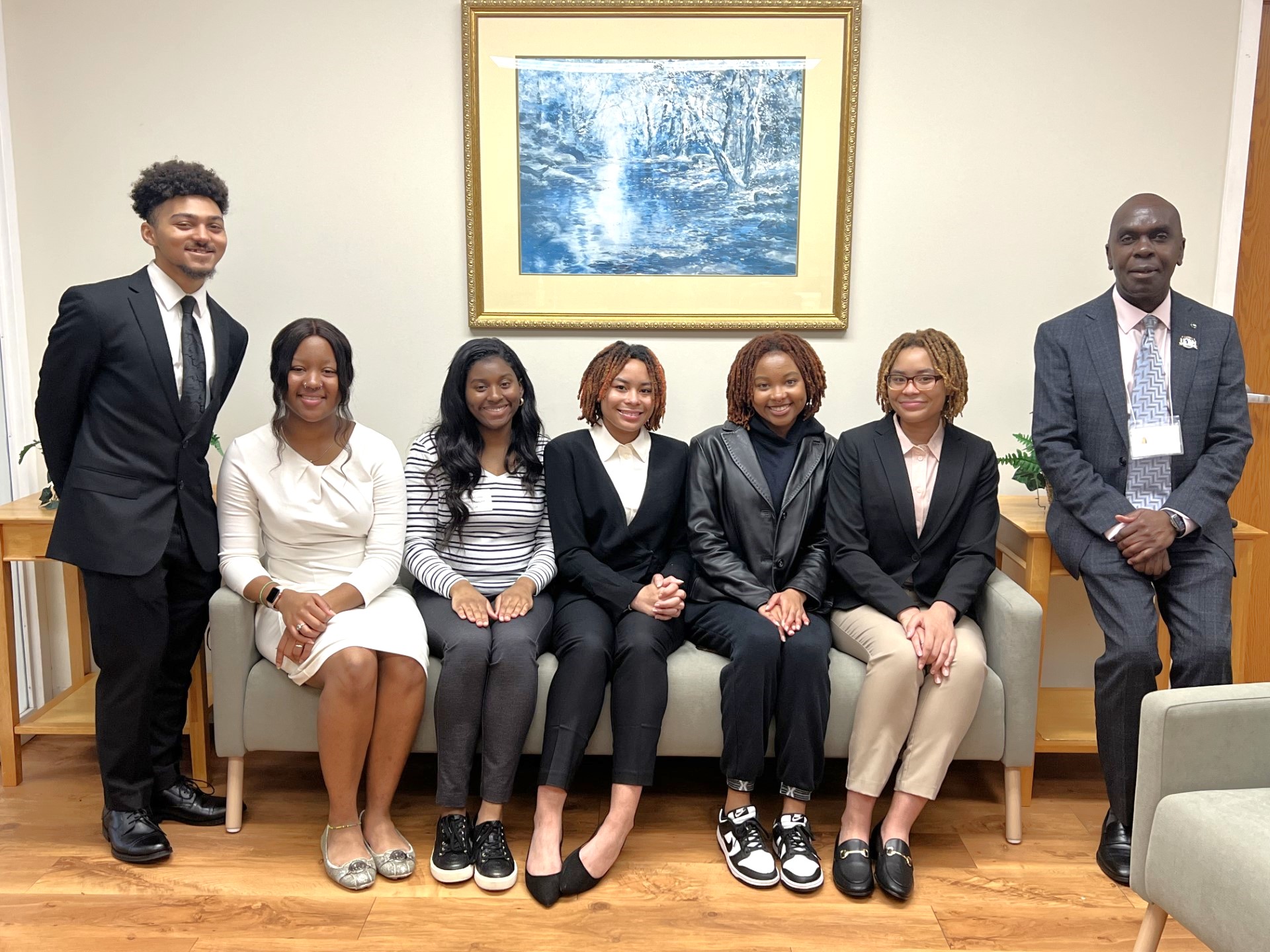Courtesy of the University of Arkansas at Pine Bluff
Seven University of Arkansas at Pine Bluff (UAPB) STEM students are attending the 55th Lunar & Planetary Conference (LPSC) in The Woodlands, Texas, from March 11 – 15, 2024, as part of NASA’s Here to Observe (H2O) program. NASA calls the student participants Student Observers. The UAPB Student Observers are Alexandria Collins, Makenzi Evans, Journee Greed, Jude Kearney, Elyse Wafer, Maya Woods and Mia Woods. UAPB’s Principal Investigator for H2O is Dr. Miah Muhammad Adel, a Physics, Astronomy, and Environmental Science Professor.
H2O participation offers attendance at a scientific conference, a visit to a NASA center, and scholarships. After attending the weeklong LPSC, UAPB’s Student Observers will visit the NASA Johnson Space Center in Houston, TX. In addition, UAPB has teamed up with NASA’s LUCY, a spacecraft launched on October 6, 2021, from Cape Canaveral Space Force Station in Florida, with a 12-year mission. It is a spacecraft for studying the asteroid 152830 Dinkinesh or ‘Dinky.’
UAPB is one of six partnering institutions funded by NASA’s Planetary Science Division’s H20 program. The program funding will continue for five years. Recruiting for the UAPB H2O program started in Fall 2023. The program began with twelve students from STEM disciplines, and seven are continuing as of Spring 2024. The H2O program consists of virtual and in-person activities. In addition to their trips and scholarships, Student Observers listen virtually each week to one-to-two-hour NASA science lectures. However, the lecture hours must not affect students’ study or work.
Dr. Adel shared, “Since the five-year program recruits 10-12 students from STEM disciplines or willing to join the STEM disciplines from the Freshman and Sophomore classes, current high school students planning to enter STEM disciplines at UAPB will have a chance to be Student Observers for the upcoming academic years. In addition, it is planned to seek the administration’s approval of 1.00 credit hour for Student Observers at the end of the academic year.”

